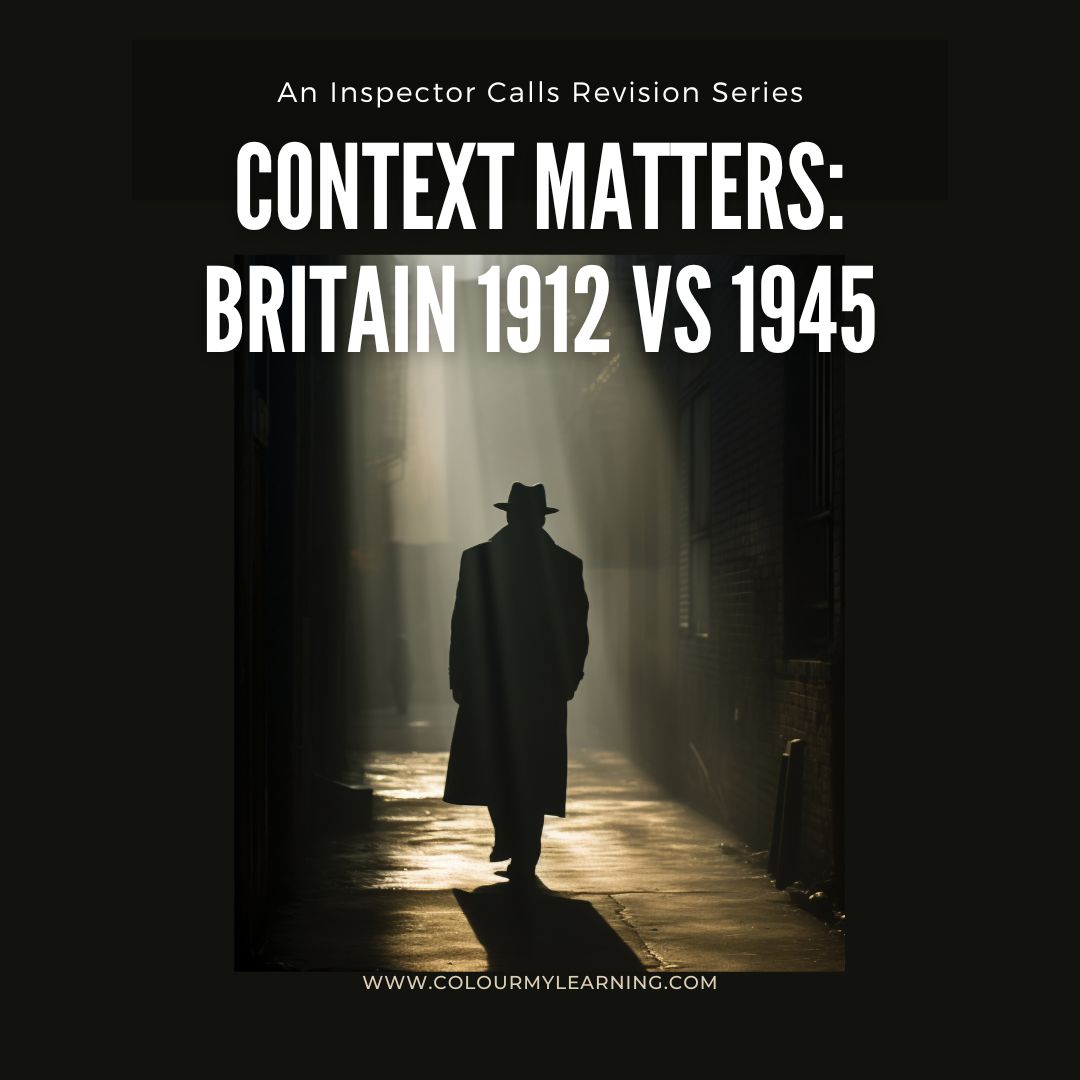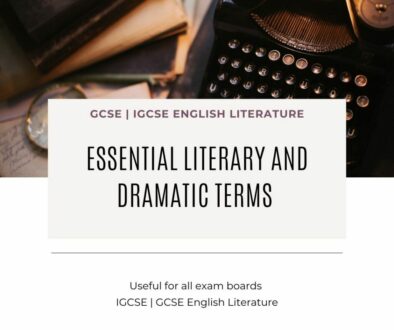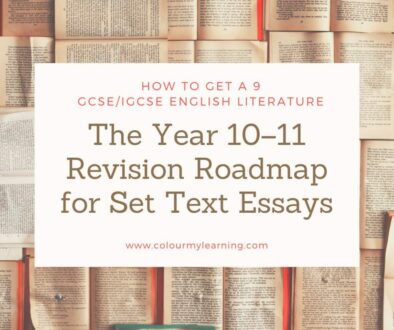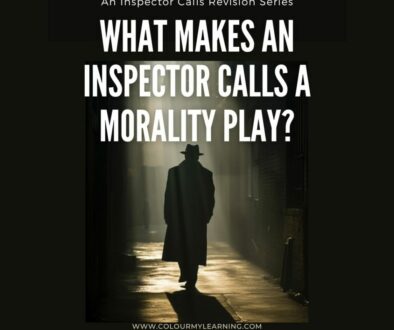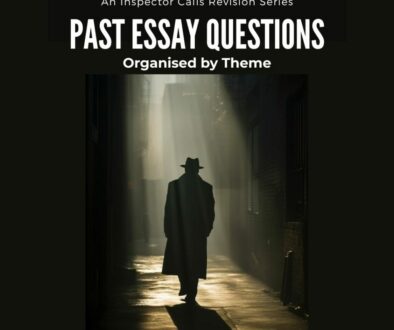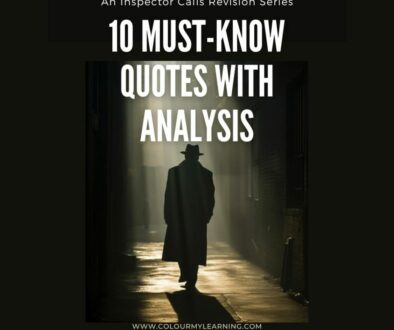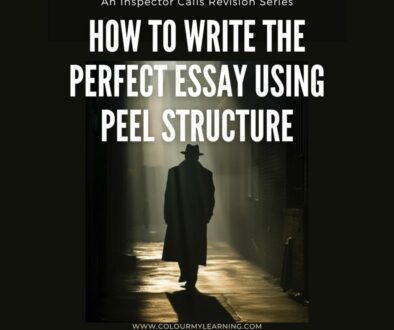An Inspector Calls: How to use Context Britain 1912 vs 1945
Although knowledge of historical context is not required to gain marks in GCSE or IGCSE English Literature exams, understanding the social and political climate that shaped An Inspector Calls can give you a deeper appreciation of Priestley’s message and help you write with greater insight and confidence.
This article explores the two key time periods relevant to the play: when it is set (1912) and when it was written and first performed (1945).
If your understanding and knowledge of context is firm, move on to practise past year questions. These are collated for Edexcel IGCSE English Literature An Inspector Calls.
Why Context Still Matters (Even If It’s Not Assessed Directly)
You won’t lose marks if you don’t mention context in your English Literature essay, because for this part of the exam, the exam boards are focussed on:
- Your understanding of characters, themes, and structure (AO1)
- Your ability to analyse language and dramatic techniques (AO2)
However, context gives you the “why” behind the “what.” When you know why Priestley chose 1912, and what audiences in 1945 would have thought, your arguments become more thoughtful and well-informed. Context helps you:
- Understand the irony in Mr Birling’s speeches
- Recognise the social change Priestley wanted to promote
- Write more meaningful responses about responsibility, class, and power
Also read: How much context do you really need?
Setting: Britain in 1912 – Before the Storm
The play begins in 1912 — a time of apparent confidence, wealth, and stability for the upper classes. But this surface calm hides deep inequalities and looming change.
Key Features of 1912 Britain:
- Rigid Class System: Society was deeply divided. The upper classes (like the Birlings) held economic and political power. Working-class people had few rights, low wages, and limited access to education or healthcare.
- Gender Inequality: Women were expected to marry well and support their husbands. Few had careers. Working-class women like Eva Smith were vulnerable to exploitation.
- Imperial Confidence: Britain controlled a vast empire. Many believed in British superiority and economic dominance.
- Political Conservatism: The Conservative and Liberal parties dominated. Social reform was slow, and attitudes towards workers’ rights and social welfare were harsh.
- Overconfidence in Progress: There was a belief in endless industrial growth and technological advancement — but it was naive and often dismissive of human cost.
Examples in the Play:
Mr Birling’s speeches reflect 1912 attitudes:
“The Titanic… absolutely unsinkable” — dramatic irony.
“A man has to mind his own business” — self-serving capitalist view.
By setting the play in 1912, Priestley allows the audience to see how wrong and shortsighted these beliefs were — encouraging them to reflect on their own values.
Performance: Britain in 1945 – After the Storm
An Inspector Calls was first performed in 1945, just after World War II ended. Audiences were still dealing with trauma, destruction, and a desire for a better future.
Key Features of 1945 Britain:
- Social Change: After two world wars, there was a strong push for greater equality. The Labour Party won a landslide victory and introduced the welfare state, NHS, and improved housing.
- War Weariness: People were tired of the old hierarchies. The sacrifices of ordinary citizens (many working class) led to a demand for dignity and fairness.
- Economic Struggle: Despite victory, Britain faced food shortages, debt, and rationing. This made post-war unity and cooperation essential.
- A Call for Responsibility: The horrors of war showed what happened when people ignored injustice, prejudice, and inequality.
What This Means for the Audience:
- In 1945, Mr Birling’s arrogance would have seemed not just foolish, but dangerous.
- Priestley’s Inspector — a voice for collective responsibility — would have struck a powerful chord with a society trying to rebuild on fairer foundations.
Priestley’s Message Across Time
J.B. Priestley was a socialist who believed in fairness, equality, and shared responsibility. By contrasting 1912 and 1945, he:
- Shows how selfish, capitalist thinking failed society (Birling, Gerald, Mrs Birling)
- Presents the Inspector as a warning and a hope — a reminder of the moral lessons we must learn
- Encourages the audience to reject the old ways and choose a more compassionate, socially responsible path
How to Use Context in Your Essay
You don’t need to write paragraphs on Edwardian politics or post-war economics — but a brief, well-placed reference can add power to your argument.
For example:
Mr Birling’s optimism about “no more war” is ironic because audiences in 1945 knew he was wrong. Priestley uses this to discredit his views.
The Inspector’s speech about “fire and blood and anguish” echoes the reality of two world wars. It’s a direct warning that ignoring social responsibility leads to disaster.
Use context to:
- Enhance your interpretation of characters
- Support analysis of irony, dramatic tension, or message
- Add depth to theme-based essays (e.g. class, responsibility, generational conflict)
Quick Comparison Table: 1912 vs 1945
| Feature | 1912 (Setting) | 1945 (Performance) |
| Class system | Rigid, privileged elite | Demand for equality post-war |
| Attitude to women | Traditional, limited opportunities | Women gained independence during wartime |
| Outlook on future | Confident, self-assured | Cautious, determined to rebuild |
| War | Unthinkable to most | Reality of two devastating wars |
| View of responsibility | Individualistic (Birling) | Collective (Inspector) |
Final Thoughts
Although you won’t be directly marked on context in your GCSE or IGCSE English Literature exam, understanding the contrast between 1912 and 1945 adds a rich layer of meaning to your analysis of An Inspector Calls.
Priestley deliberately sets his play in the past to speak to the present. He wants audiences — then and now — to reflect on how we treat others, how we view privilege, and whether we take responsibility for the world we live in.
See how much context you recognise and are able to note in relation to past exam questions. While you may not need to include context directly, knowing how it influences the writer and the play will help with your understanding of it. Take a look at the full compilation of Past Exam Questions An Inspector Calls here.
Want to revise smarter?
Explore our full An Inspector Calls Revision Guide available now. An Inspector Calls Revision Guide and other free resources on our An Inspector Calls: Revision Resources Page.
Includes:
- Detailed character and theme analysis
- Sample essays using PETAL
- Exam practice and model responses
- Downloadable past questions by theme
